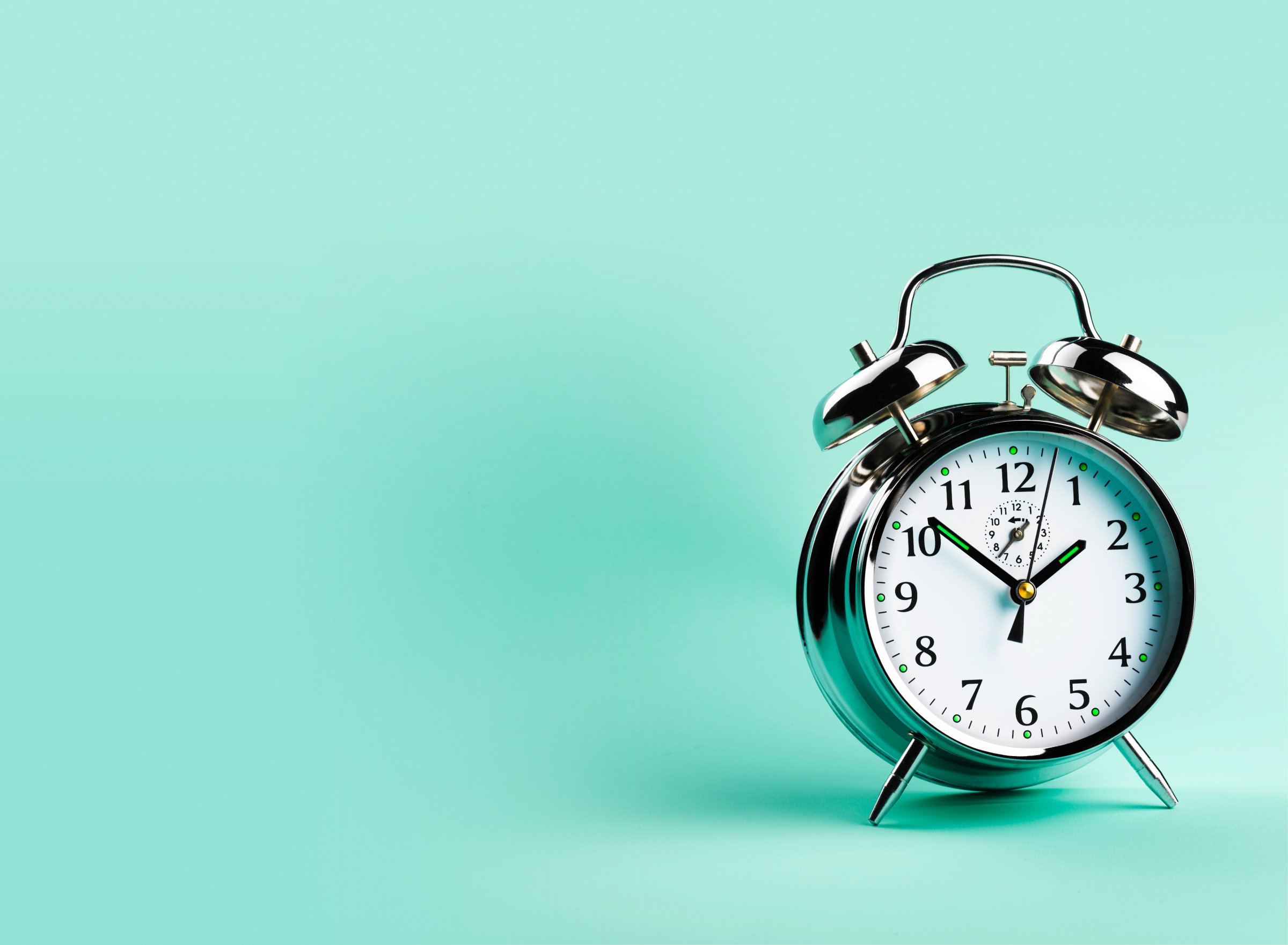
Let us guess. Your mornings go something like this: Alarm blares, you hit snooze. Alarm blares, you hit snooze. And then, once you’ve looked at the clock to realize that you’re ridiculously late, you jump up in a blind panic, spray some dry shampoo through your hair and dart out the door.
More than half of Americans regularly hit the snooze button, according to a survey from the French tech firm Withings. And apart from potentially ruining your morning, hitting snooze can interfere with your sleep quality down the line—leading to even more snooze button hitting, says Dr. Peter A. Fotinakes, medical director of the St. Joseph Hospital Sleep Center.
Here are five ways to break the cycle, stop hitting snooze and make your mornings easier.
1. Go to bed on time
“The best way to avoid the snooze button is to simply to get enough quality sleep the night before,” says Fotinakes. It sounds simple, but if you sleep well at night, it shouldn’t be difficult to wake up in the morning. You shouldn’t feel the need to hit snooze. However, if you don’t get enough sleep, or if your sleep schedule is erratic, you create a sort of self-imposed jet lag that makes you hit snooze and roll over since you crave more sleep, he says. Get seven to nine hours of sleep, ideally at the same time every night, and you’ll go a long way toward fighting your snooze addiction.
2. Time your sleep stages
Ideally, most of your deep sleep occurs during the first part of the night, while your stage one (a.k.a. light) sleep stages dominate the early morning hours, Fotinakes says. However, periodic spots of deep sleep still occur in the early morning hours. “If your alarms sound when you happen to be cycling through deep sleep, you’ll be dragging yourself out of bed instead of smoothly transitioning out of that lovely dream you were having,” Fotinakes says. You experience “sleep inertia,” in which you experience extreme sleepiness for up to several hours after waking.
While there’s no perfect way to guarantee that your alarm won’t go off during deep sleep, trackers like Beddit and Sleep Cycle can help. After you set a 30-minute wake-up window and go to sleep, they monitor various inputs, such as your body movements and heartbeat, to help determine sleep stage. When you enter a light sleep stage during that 30-minute window, the alarm sounds.
Read more: How I Became a Morning Person
3. Turn up the lights
“In general, we awaken more easily when we’re exposed to light,” says Rebecca Scott, research assistant professor of neurology at the NYU Langone Comprehensive Epilepsy Center—Sleep Center. That’s because light is the primary factor in charge of setting your circadian rhythm or internal clock.
To use light to your advantage, try setting your alarm by the window. When it goes off, you’ll be forced to get up in order to turn it off (or hit snooze). As you do so, open the blinds. The influx of light will help your brain realize that, yes, it is actually time to get up, says Scott. You can also consider sleeping with the blinds open. If your wake-up time coincides with the sunrise, perfect. If not, wear an eye mask until your alarm goes off, she says
4. Increase your morning motivation
“Waking up is physiological,” says Dr. Rafael Pelayo, clinical professor of psychiatry and behavioral sciences at the Stanford Center for Sleep Sciences and Medicine. “Getting out of bed is volitional.” Whether you need to wake up early to go to work, a breakfast or a morning run, making sure that you are excited to get out of bed is a must, he says.
For instance, in his patients who love to paint, he implements a rule that they can only paint in the mornings. Then they look forward to getting up in the morning because they see it as an opportunity to participate in a hobby. Not into painting? Think of something else that would make you pop out of bed. Maybe you reserve before-work hours for watching Netflix. Or if you’re addicted to your phone or Facebook feed, keep your phone in the living room. That way, you have to physically get out of bed to get your fix.
5. Consider your sleep quality
If you’ve checked everything off of the list and still can’t curb your snooze-button habit, it’s worth having your sleep evaluated by a qualified sleep professional. “The snooze button is often a sign of a potential underlying sleep problem,” Fotinakes says. Even if you spend enough time sleeping per night, if that sleep is riddled with tossing, turning or sleep disorders like sleep apnea, you won’t wake up feeling rested. “In the cases of sleep disorders, no matter how long you sleep, you’re not restored,” he says.
More Must-Reads from TIME
- Donald Trump Is TIME's 2024 Person of the Year
- Why We Chose Trump as Person of the Year
- Is Intermittent Fasting Good or Bad for You?
- The 100 Must-Read Books of 2024
- The 20 Best Christmas TV Episodes
- Column: If Optimism Feels Ridiculous Now, Try Hope
- The Future of Climate Action Is Trade Policy
- Merle Bombardieri Is Helping People Make the Baby Decision
Contact us at letters@time.com